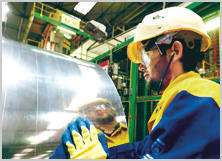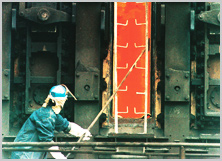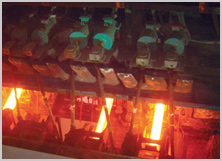 PROJECT LOCATION: Aldwarke, IJmuiden, Jamshedpur, Port Talbot and Scunthorpe
PROJECT LOCATION: Aldwarke, IJmuiden, Jamshedpur, Port Talbot and Scunthorpe
PROJECT: The aim of this project was to reduce the costs of ironmaking and steelmaking by optimal recycling of iron-bearing waste. This had to be done without affecting the performance of the Blast Furnace, the Sinter Plant and the Steel plant.
EFFECTS: The group studied the problem by estimating the impact of revert on the Sinter, BF and BOS process. They also studied flowcharts that identified iron-bearing waste recycling streams for every ironmaking/steelmaking site of Tata Steel Group.
The efforts paid off with savings of 500 kilo tonnes per annum and estimated savings exceeding $100 million per annum at current ore prices. The processes put in place by the team after identifying best practices on recycling, oily mill scale treatment, reclaiming iron-bearing wastes were implemented at various sites across the Tata Steel Group.
The team for this project was drawn from the departments of RD&T-Ironmaking, Ironmaking, Sinter Plant, Raw Materials, IMTG and Environment from different TSL sites where the project was implemented.


 PROJECT LOCATION:
PROJECT LOCATION: PROJECT LOCATION:
PROJECT LOCATION: